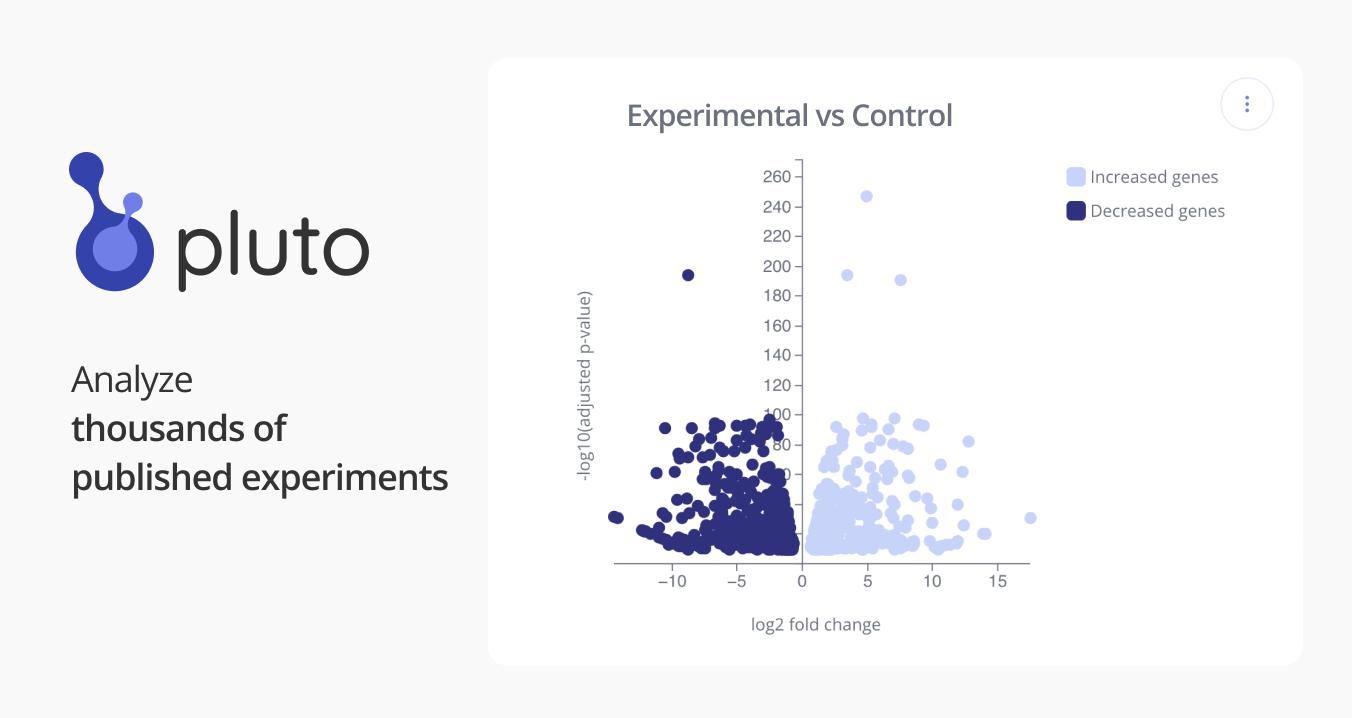Pluto Bioinformatics
GSE142511: Next Generation Sequencing Facilitates Quantitative Analysis of MicroRNA-148a Inhibited Transcriptomes
Bulk RNA sequencing
Purpose: MicroRNA-148a regulates the differentiation of dendritic cells. The goals of this study are to identify genes and pathways invovled in the regulation.; Methods: Monocytes isolated from wild type or microRNA-148a-/- BM were cultured with GM-CSF and IL-4, or not. Cells were collected at day 0 and day 3. Then, the next-generation libraries of mRNA were prepared using VAHTS mRNA-seq v2 Library Prep Kit for Illumina (Vazyme, Nanjing, China). The Library quality was determined by Bioanalyzer 4200 (Agilent, Santa Clara, CA, USA). Then the mRNA-seq libraries were sequenced in HiSeq 10 system (Illumina, San Diego, CA, USA) on a 150bp paired-end run. The differentially expressed genes were selected as having more than 0.5 fold difference in their geometrical mean expression between the compared groups and a statistically significant p-value (<0.05) by analysis of DEseq2. The GO analysis on differentially expressed genes was performed with an R package: Clusterprofiler using a p<0.05 to define statistically enriched GO categories. Pathway analysis was used to determine the significant pathway of the differential genes according to Kyoto Encyclopedia of Genes and Genomes Database (http://www.genome.jp/kegg/) and DAVID Bioinformatics Resources 6.8 (https://david.ncifcrf.gov/).; Results: Gene ontology analysis showed that obviously changed genes enriched in autoimmune disease related pathways, suggesting miR-148a is important in autoimmune responses. 990 protein-coding genes upregulated in their mRNA abundance in miR-148a-/- monocytes on day 0, and 1036 genes in miR-148a-/- monocytes on day 3. Among them, 136 genes were found upregulation on both day 0 and 3 in miR-148a-/- monocytes. SOURCE: Haibo Zhou (hbzhou1984@gmail.com) - Renji Hospital
